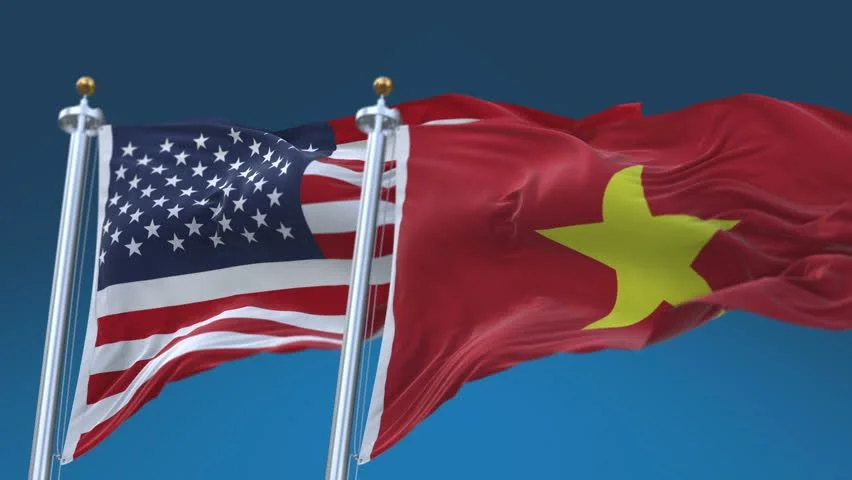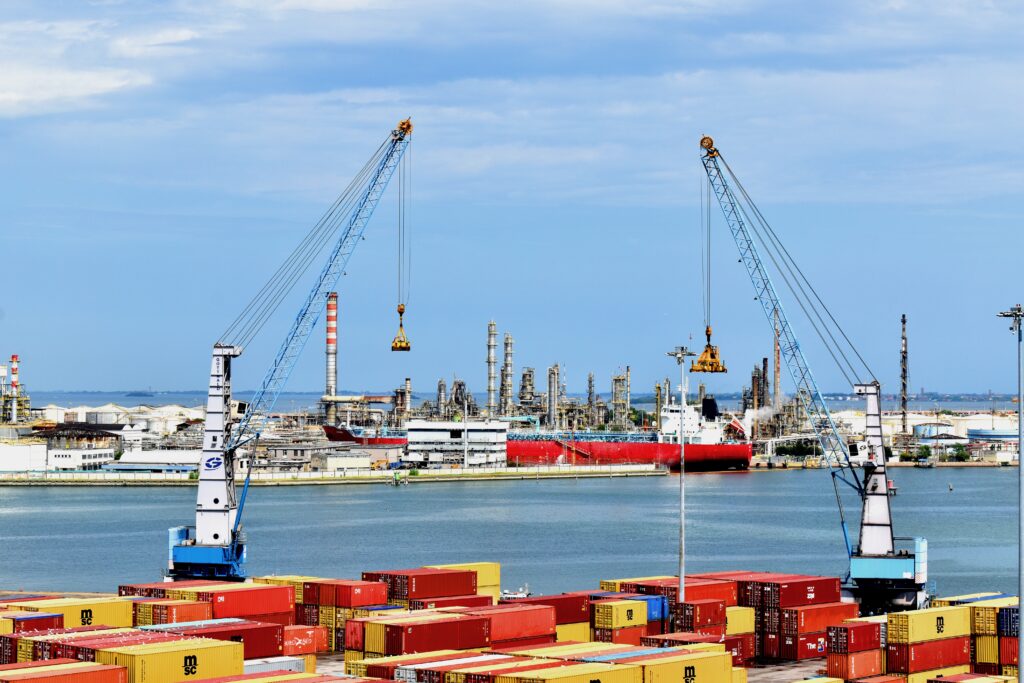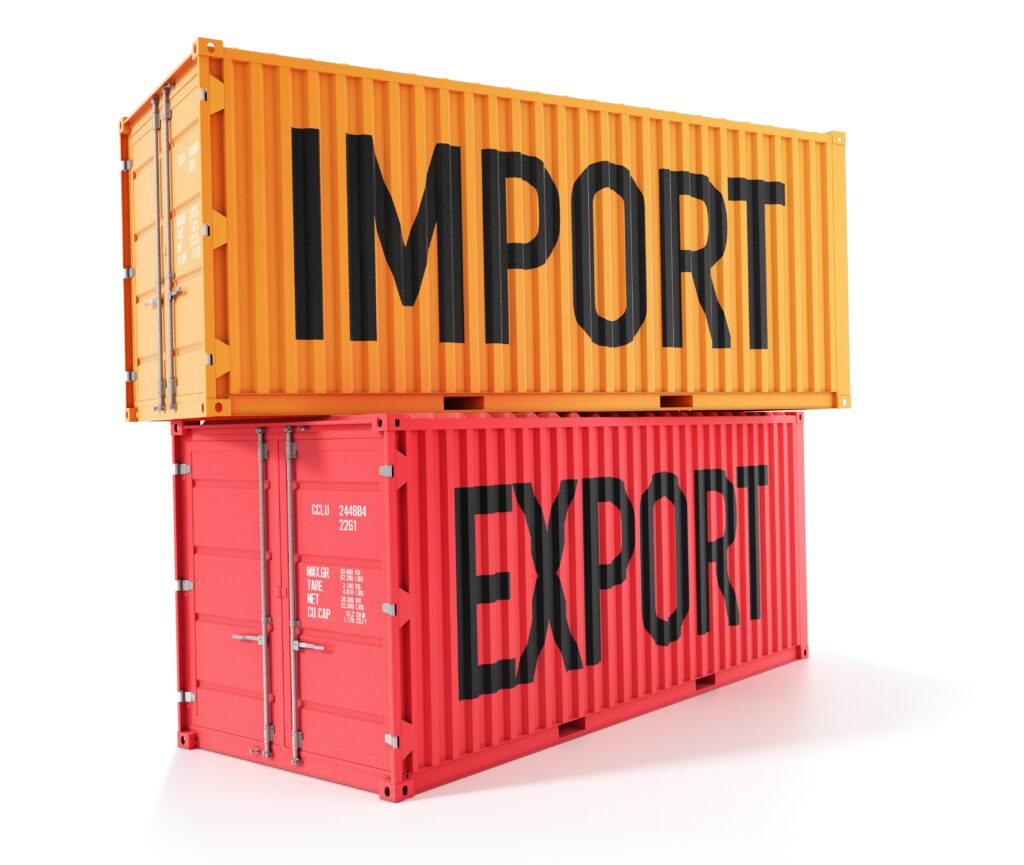Economy of Vietnam: the US elections
- 05/11/2024
- Posted by: Thao Tran
- Category: News

Now that the elections in the US are over: the World is preparing for a new US administration under President Donald Trump. In this post, we will summarize some opinions about how these elections may affect the relationship between the US and Vietnam, as well as the economy of Vietnam in the near future.
1. Trade and Tariffs: Potential for More Protectionism
Republican presidents have historically been more inclined to impose tariffs and take a more hardline stance on trade imbalances. For Vietnam, this could mean:
- Increased Tariffs on Exports: During the Trump administration, Vietnam faced scrutiny for its trade surplus with the U.S., particularly in electronics, textiles, and footwear. Trump may indeed push for new tariffs or sanctions on Vietnamese products. Especially in sectors where the U.S. sees an unfair advantage or trade imbalance. This could raise costs for Vietnamese exporters, reducing the competitiveness of goods like clothing, footwear, and electronics in the U.S. market.
- Focus on Bilateral Trade Deals: Instead of multilateral frameworks like the CPTPP (Comprehensive and Progressive Agreement for Trans-Pacific Partnership), the new Trump administration may prioritize bilateral trade agreements. This could lead to a renegotiation of trade terms between the U.S. and Vietnam, possibly with stricter rules on intellectual property, market access, and labor standards.

2. Foreign Direct Investment (FDI) into the economy of Vietnam
Republicans generally favor business-friendly policies that encourage foreign direct investment (FDI) in the U.S., but their policies abroad may differ:
- Encouraging Investment in High-Tech Sectors: The Trump administration may continue to support American businesses looking to outsource or expand operations in lower-cost manufacturing hubs, such as Vietnam. However, security concerns over China’s influence and intellectual property may lead to tighter restrictions on high-tech investment and transfers of sensitive technologies. And Vietnam can be influenced by that.
- Increased Competition with China: One area of potential benefit for Vietnam is that Trump may very well maintain a hard stance on China. As part of its “decoupling” strategy, the U.S. may encourage companies to relocate manufacturing from China to other Southeast Asian countries, including Vietnam. This could increase FDI, particularly in manufacturing, electronics, and assembly sectors. However, this shift could come with increased pressure to meet U.S. standards on labor rights, environmental practices, and intellectual property protection.
- Investment in Infrastructure and Energy: Given the pro-business orientation of the Republican Party in general, the U.S. may encourage investments in infrastructure development in Vietnam, especially in sectors like energy, transportation, and digital infrastructure. However, this may be more likely if Vietnam aligns with U.S. interests in geopolitical stability (e.g., supporting American strategies in the Indo-Pacific region).
3. Geopolitical and Security Implications
President Trump will likely continue to prioritize geopolitical competition with China and he will want to strengthen alliances in the Indo-Pacific, including with Vietnam. However, there are several caveats:
- Stronger Military and Security Ties: Vietnam with its strategic location in Southeast Asia, could benefit from stronger security cooperation with the U.S., including military aid, joint training, and access to American defense technology. However, Vietnam would need to carefully balance its relationship with the U.S. and China, as it seeks to maintain its policy of non-alignment.
- Regional Security Initiatives: If the Trump administration continues its “free and open Indo-Pacific” strategy, it may push for closer ties between the U.S. and Vietnam on matters of regional security. This would likely increase Vietnam’s role in regional trade and security architecture, which could indirectly benefit its economy by improving its geopolitical standing and fostering a safer environment for trade.

4. Environmental and Climate Policies: Potential Slowdown in Green Initiatives
Republican administrations are generally less focused on climate change compared to Democrats, which may have mixed implications for Vietnam:
- Reduced Emphasis on Green Policies: A Republican administration might dial back commitments to climate action, potentially affecting environmental collaboration with Vietnam in sectors like renewable energy, carbon reduction, and sustainability initiatives. The U.S. may be less inclined to support large-scale green energy projects in Vietnam if it prioritizes domestic economic growth and energy independence over international climate accords.
- Impact on Clean Energy Investments: While Republican administrations have generally favored traditional energy sources like coal, oil, and natural gas, this could mean less American investment in green energy projects in Vietnam. However, if Republican policies promote natural gas and nuclear energy, Vietnam may see some benefits in its energy transition toward cleaner sources.
5. Remittances and Vietnamese Diaspora
A shift in U.S. immigration policies under the new administration may affect the Vietnamese diaspora community:
- Tighter Immigration Policies: Republicans have historically supported more restrictive immigration policies, which could affect the number of Vietnamese immigrants coming to the U.S. and the flow of remittances back to Vietnam. If the U.S. reduces the number of visas available for Vietnamese nationals or tightens citizenship laws, the size of the diaspora could shrink, leading to a decrease in remittances, which are a significant source of income for many families in Vietnam.
- Economic Influence of Vietnamese-Americans: The political environment in the U.S. under the new Trump administration could also affect the ability of Vietnamese-American communities to advocate for their homeland, including pushing for favorable trade terms, immigration policies, and economic partnerships.

Summary: affects over the economy of Vietnam
In summary: Trump’s win in the 2024 U.S. election may significantly change the dynamics of Vietnam’s economic relationship with the U.S. Trade tensions might increase due to potential tariff hikes and protectionist policies. There could also be opportunities for Vietnam, particularly in the form of increased FDI as companies seek alternatives to China. Geopolitically, Vietnam may gain from strengthened security ties, particularly in the face of rising tensions in the South China Sea. However, a shift away from environmental policies and stricter immigration laws could present challenges.
The economy of Vietnam may benefit from some aspects of a Republican-led U.S., particularly in terms of manufacturing relocation and security cooperation. The overall impact on Vietnam economy will depend on how it navigates potential trade barriers and aligns its policies with changing U.S. interests.
Below is a list of the sources that we have read and used for this post. We thank all the experts and journalists who researched and prepared these articles for their analysis and info:
Vấn đề và Giải pháp: Tác động của bầu cử Mỹ đến nền kinh tế Việt Nam
Kết quả bầu cử Mỹ ảnh hưởng thế nào đến kinh tế Việt Nam? – Vietnam.vn
Chính sách của ông Trump đối với những vấn đề nóng nhất ra sao?
What 2024 US presidential election means for Vietnam’s economy | Tuoi Tre News
How the US election result can impact Việt Nam’s exports
VNHL is here to support you
VNHL carefully follows the news about the economy of Vietnam, and about the overall climate for investment, business, and living in Vietnam. If you have any questions, or if you are looking to do business, invest, or move to Vietnam: feel free to reach out to us. Our three main services are: (i) consulting, (ii) networking, and (iii) supporting. You can reach out to us via the chat button on the right of this page, or via our contact us page. In any case, we look forward to hearing from you and to supporting you.

*Dear reader, even though our VNHL Consulting team always tries its very best to provide its Clients with correct and complete info: we are not a Vietnamese law firm. The information in this post is therefore not meant to, and should also not be construed to, constitute legal advice. For specialized advice in the fields of law, accounting, tax, etcetera: we always recommend our Clients to speak with qualified specialists in those fields. We have several such specialists in our nationwide network, and we are always happy to introduce our Clients to them, when appreciated.

